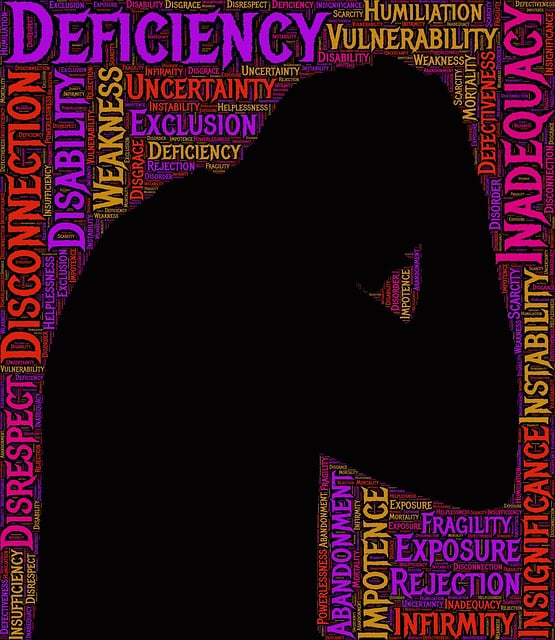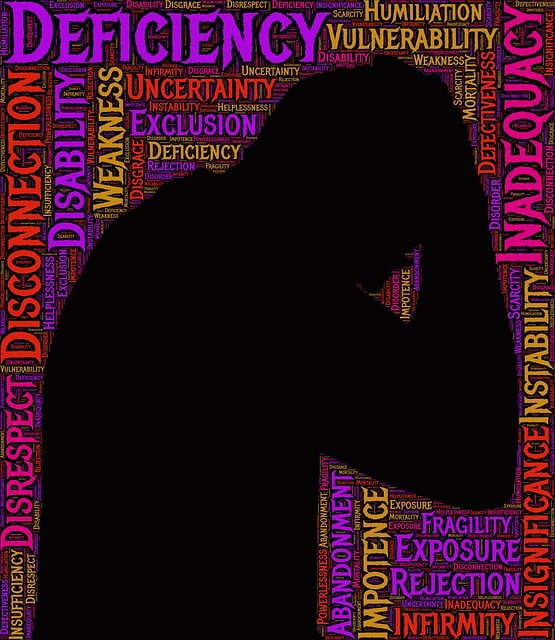The media's portrayal of mental health significantly influences societal attitudes, impacting individuals seeking support. Accurate representations, like those seen in Mental Wellness Podcast Series, can encourage help-seeking behaviors by fostering understanding and empathy. However, negative stereotypes or misinformation perpetuate stigma, leading to fear and secrecy. Longmont German Speaking Therapy professionals emphasize the need for precise media depictions, especially for complex cases influenced by media stigma. This therapy center challenges stereotypes through nuanced representations and cultural competency programs, empowering German-speaking individuals to navigate mental wellness challenges. By bridging cultural and linguistic barriers, they ensure diverse voices are heard, encouraging everyone to seek help without hesitation. Effective public awareness campaigns, combined with expert collaboration, can shape Mental Health Policy Analysis and Advocacy, leading to a more compassionate and informed society.
Mental illness representation in media significantly impacts public perception and understanding of these conditions. This article delves into the challenge of inaccurate portrayals, exploring their profound effects on mental health discourse. We examine the current state of media’s role in shaping societal views, highlighting common misrepresentations. Introducing Longmont German Speaking Therapy as a cultural initiative fostering accurate representation, we discuss strategies to promote positive and realistic narratives in media. By implementing these approaches, we aim to bridge the gap between media portrayal and understanding mental health with empathy and nuance.
- Understanding the Impact of Media Portrayals on Mental Health Perception
- The Current State: How Media Often Misrepresents Mental Illness
- Longmont German Speaking Therapy: A Cultural Bridge to Accurate Representation
- Strategies for Promoting Positive and Realistic Mental Health Narratives in Media
Understanding the Impact of Media Portrayals on Mental Health Perception

The media plays a powerful role in shaping societal perceptions about mental health and illness. How we view and understand these conditions is significantly influenced by what we see, hear, or read in various forms of media, including television shows, movies, news articles, and social media platforms. This impact is especially significant for individuals dealing with mental wellness issues, as media portrayals can either perpetuate stigma or foster understanding and empathy.
For instance, positive representations of therapy and mental health professionals, such as those found in the Mental Wellness Podcast Series Production, can encourage people to seek help. Conversely, negative stereotypes or inaccurate depictions in media may contribute to fear, discrimination, and a reluctance to discuss mental health openly. Longmont German Speaking Therapy professionals highlight the importance of accurate representation to ensure individuals receive appropriate support and care. A comprehensive Risk Assessment for Mental Health Professionals is crucial to navigate these challenges and provide effective treatment, especially when navigating complex cases that involve media-induced stigma or heightened anxiety.
The Current State: How Media Often Misrepresents Mental Illness

Media often perpetuates harmful stereotypes and misconceptions about mental illness, contributing to stigma and misunderstanding in society. Common portrayals in TV shows, movies, and news media frequently reduce complex conditions to simplistic narratives, emphasizing drastic or violent behaviors as defining characteristics. For instance, depicting depression as mere sadness or anxiety as a fleeting panic attack oversimplifies these experiences and fails to capture the nuances of living with a mental health condition. This misrepresentation can lead to a lack of empathy from viewers and misinform those seeking support, potentially deterring them from reaching out for help.
In many cases, media characters struggling with mental illness are presented as either heroic or villainous, neglecting the complexity in between. These binary portrayals overlook the diverse experiences and journeys of individuals dealing with conditions like depression, schizophrenia, or bipolar disorder. Longmont German-speaking therapy offers a more nuanced approach, emphasizing the importance of cultural competency among healthcare providers (including risk management planning for mental health professionals). By promoting understanding and inner strength development, these initiatives aim to challenge stereotypes and provide accurate representations that reflect the reality of mental illness.
Longmont German Speaking Therapy: A Cultural Bridge to Accurate Representation

Longmont German Speaking Therapy offers a unique and valuable perspective on mental illness representation in media by bridging cultural gaps. Many mental health narratives in mainstream media often lack diversity, particularly when it comes to ethnic and linguistic backgrounds. This therapy center steps in as a cultural bridge, ensuring that German-speaking individuals with mental health struggles are seen and heard. By providing services tailored to their specific needs, they challenge stereotypes and promote accurate representation.
The approach focuses on the design of mental health education programs specifically catering to the German-speaking community. Through these programs, individuals can learn about self-care routines for better mental wellness, fostering a sense of belonging and understanding. This initiative not only addresses the media’s representation gap but also empowers those from diverse cultural backgrounds to seek help without facing linguistic or cultural barriers.
Strategies for Promoting Positive and Realistic Mental Health Narratives in Media

Media plays a significant role in shaping societal perceptions of mental illness. To challenge stigmatizing representations, various strategies can be employed to promote positive and realistic narratives. One effective approach is encouraging diverse storytelling that reflects the breadth of mental health experiences. This includes featuring characters with different diagnoses, backgrounds, and cultural identities, ensuring a more accurate portrayal.
Additionally, collaboration between media professionals and mental health experts is vital. Longmont German-speaking therapy practitioners can contribute their insights to scriptwriting and consulting, fostering authentic representations. Public Awareness Campaigns Development and Communication Strategies can further enhance these efforts by engaging the public in conversations about mental health, dispelling myths, and promoting empathy. By implementing such initiatives, media can significantly contribute to Mental Health Policy Analysis and Advocacy, fostering a more compassionate and informed society.
Media has a significant impact on shaping societal perceptions of mental illness. The current state of representation often perpetuates stereotypes and misinformation, contributing to stigma and misinformed attitudes. However, initiatives like Longmont German Speaking Therapy are bridging cultural gaps and promoting accurate, positive narratives. By implementing strategies that encourage realistic portrayals in media, we can foster understanding, empathy, and reduced stigma, ultimately improving mental health support and care for all communities.








